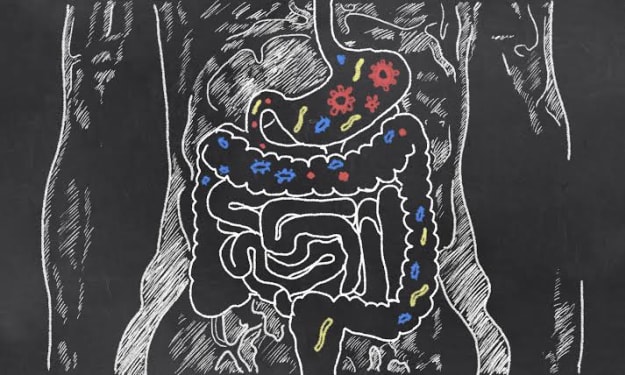
Stress is a common experience that can affect our mental, emotional, and physical health. Fortunately, there are many simple and effective strategies that we can use to manage stress and improve our well-being. In this essay, we will discuss 50 different strategies for stress management.
Exercise regularly: Exercise is a great way to release tension and improve mood.
Practice yoga: Yoga can help reduce stress and improve flexibility and strength.
Take deep breaths: Deep breathing can help calm the mind and reduce stress.
Meditate: Meditation can help reduce anxiety and promote relaxation.
Spend time in nature: Being in nature can help reduce stress and promote feelings of well-being.
Listen to calming music: Listening to calming music can help reduce stress and promote relaxation.
Practice gratitude: Practicing gratitude can help reduce stress and improve overall well-being.
Get enough sleep: Getting enough sleep is important for managing stress and maintaining good health.
Limit caffeine: Too much caffeine can increase anxiety and make stress worse.
Practice self-care: Engage in activities that promote self-care, such as taking a bath, getting a massage, or reading a book.
Laugh: Laughter can help reduce stress and improve mood.
Spend time with friends: Spending time with friends can help reduce stress and promote feelings of happiness.
Set boundaries: Setting boundaries can help reduce stress and promote a sense of control.
Learn to say "no": Saying "no" can help reduce stress and prevent burnout.
Practice mindfulness: Mindfulness can help reduce stress and promote a sense of calm.
Write in a journal: Writing in a journal can help reduce stress and promote self-awareness.
Take breaks: Taking breaks throughout the day can help reduce stress and improve productivity.
Practice deep muscle relaxation: Deep muscle relaxation can help reduce tension and promote relaxation.
Use aromatherapy: Aromatherapy can help reduce stress and promote relaxation.
Visualize: Visualizing a peaceful scene can help reduce stress and promote relaxation.
Focus on the present moment: Focusing on the present moment can help reduce stress and promote mindfulness.
Eat a healthy diet: Eating a healthy diet can help reduce stress and promote overall health.
Drink herbal tea: Herbal tea can help reduce stress and promote relaxation.
Engage in creative activities: Engaging in creative activities, such as painting or writing, can help reduce stress and promote self-expression.
Practice positive self-talk: Positive self-talk can help reduce stress and promote self-confidence.
Seek social support: Seeking social support can help reduce stress and promote feelings of connection.
Practice time management: Practicing good time management can help reduce stress and improve productivity.
Get organized: Getting organized can help reduce stress and promote a sense of control.
Practice progressive muscle relaxation: Progressive muscle relaxation can help reduce tension and promote relaxation.
Practice self-compassion: Practicing self-compassion can help reduce stress and promote self-care.
Engage in physical activity: Engaging in physical activity, such as dancing or jogging, can help reduce stress and improve mood.
Take a hot bath: Taking a hot bath can help reduce stress and promote relaxation.
Get a pet: Having a pet can help reduce stress and promote feelings of well-being.
Practice forgiveness: Practicing forgiveness can help reduce stress and promote emotional healing.
Practice visualization: Visualizing success can help reduce stress and promote confidence.
Engage in hobbies: Engaging in hobbies, such as gardening or playing a
Practice positive affirmations: Repeating positive affirmations can help reduce stress and promote self-confidence.
Practice relaxation techniques: Engage in relaxation techniques such as progressive muscle relaxation, guided imagery, or biofeedback.
Take a break from technology: Disconnecting from technology can help reduce stress and promote mindfulness.
Learn a new skill: Learning a new skill can help reduce stress and promote a sense of accomplishment.
Engage in volunteer work: Volunteering can help reduce stress and promote a sense of purpose.
Practice deep listening: Engage in deep listening to reduce stress and promote connection with others.
Spend time with animals: Spending time with animals can help reduce stress and promote feelings of comfort and calm.
Practice assertiveness: Being assertive can help reduce stress and promote effective communication.
Engage in humor: Laughing or engaging in humor can help reduce stress and promote relaxation.
Practice spirituality: Engage in spiritual practices such as meditation, prayer, or attending religious services to promote a sense of inner peace and purpose.
Take a digital detox: Take a break from social media, email, or other digital distractions to reduce stress and promote mindfulness.
Use stress balls or fidget toys: Using stress balls or fidget toys can help reduce stress and promote relaxation.
Take a break from work: Taking a break from work can help reduce stress and promote a sense of balance.
Seek professional help: If stress is causing significant distress or interfering with daily life, seeking professional help from a therapist or counselor can be beneficial.
About the Creator
9FunFacts
belief in or acceptance of something as true.






Comments
There are no comments for this story
Be the first to respond and start the conversation.